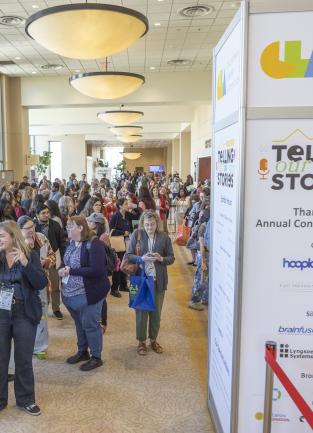My time at the SCALL Institute

Tue, 08/03/2022 - 04:00
My first in-person conference post-pandemic was a welcome return to normal rhythms. The Southern California Association of Law Libraries (SCALL) hosted its 50th Institute this year and it was memorable. Traveling to Palm Springs and soaking up that California “winter” sun while discussing the history of legal research was the perfect way to start off my first in-person conference of the year. Other highlights included reconnecting with colleagues and meeting some for the first-time face to face.
The Institute began on Friday, February 11, with a look back to SCALL’s 50 years of Institutes. Legal research has come a long way from books to clunky desk modules from Lexis to accessing information at the click of our keyboards. The display outside of the conference room had some artifacts of legal research past, like a card catalog and old guides. After delving into the past, we pivoted to the present. Virtual platforms, like Zoom and Webex, and their uses for programming, providing training, and connecting with staff were a huge topic concerning the present state of legal research. All of us have had to reimagine our services during the pandemic and closure to in-person services. And finally, we shifted to the future with what skills our profession would need.
One presentation on the future state of legal research was by Cas Laskowski, Head of Research, Data and Instruction from University of Arizona Law Library. She presented Acquiring essential skills for the future. Her interactive presentation started with the basics and moved into more complex concepts. She really illuminated the complexity of ethics and governance on artificial intelligence, especially in regard to accuracy. (I also appreciated that her first two slides featured cats.)
To start, we learned about the four parts of machine learning:
- Defining the problem
- Engaging with the data
- Building the model
- Deploying the model
The example she used to illustrate was about loans. We were loan agents and needed to decide who to provide a loan to (defining the problem), so we asked a system to tell us who is the person most likely to pay us back. It’s not as easy as typing in a few keywords and clicking a few boxes. To engage with the data, you have to tell the system to look for holes (exclude people who already have loans or other search parameters) or you would perform the search and have to review the resulting data line by line. If it’s a lot of data, that would not be feasible, so you’d have to figure out how to tell the system to perform a narrower search. Building models illustrates that systems look for patterns, and what could appear as a “right” answer is really the model that works best within prescribed codes and parameters. Most of us work in the deployed model, where we don’t know the scope of the data, so in searching caselaw for those who have defaulted on loans, we don’t know the actual number of defaults, we only have info on cases that made it to court.
Cas recommended that we play with new systems to get to know them better and understand the structures better. She demonstrated this “play” with a live group activity using, where we inputted word combinations, like strawberry/banana or chef/cook and the system ranked it in terms of feminine or masculine and power. This activity helped solidify that systems don’t understand what the meaning of a word or concept is; it instead assigns ranges of numbers to words and makes correlations.
My takeaway from the presentation is that we should be investigating and asking questions of the systems, databases, services and anything else we use for work. When using databases like Westlaw, Lexis or Fastcase, we can ask why these cases were retrieved when we entered in our search parameters. When using our catalog we can ask why these particular items were retrieved when performing that search. We can test the system to see how the results appear on the screen and if the search limitations are in an easy to access place for patrons. Asking questions of how we do things will lead to providing better information to our patrons and provide better legal research habits.
I was happy to receive a grant to attend this year’s SCALL Institute and be able to attend an in-person conference. As someone new to the law library field (I left public libraries in 2020) it was helpful to understand where we have been with legal research, where we are and where we can go. I look forward to applying what I learned at the conference to my role as the User Experience Librarian at Riverside County Law Library.
Written by: Jenna Pontious, Public Services Librarian











